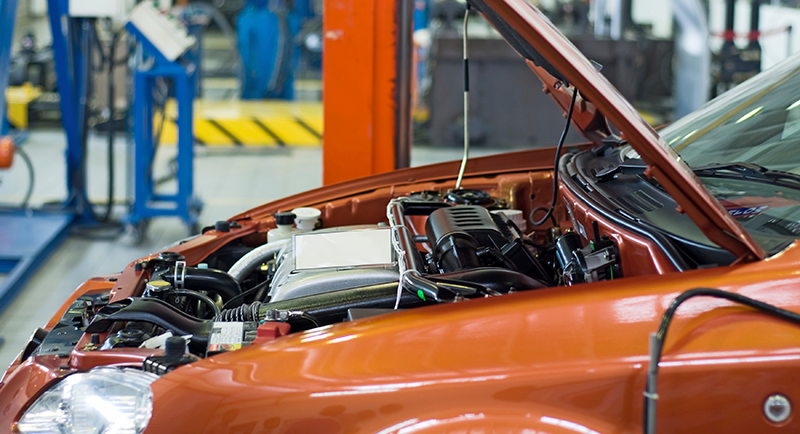As technology advances, vehicles continue to get more and more complex. A full-service automotive shop must be prepared for any issue, and it’s important to have superior-quality parts to perform long-lasting repairs for customers.
Although the list of automotive issues is very long, perhaps the most common fall under these categories: electrical, fluid leaks, and collision repairs.
1. Electrical:
With so many automotive shops competing for business, choosing quality can provide your shop with a competitive advantage. Vehicles have many electrical connections and dozens of feet of wiring. Because of this, there always is a risk of electrical failure. Failures can include a dead battery, faulty headlights, blown fuses, faulty switches and relays, electrical short, and more.
With so many automotive shops competing for business, choosing quality can provide your shop with a competitive advantage. Vehicles have many electrical connections and dozens of feet of wiring. Because of this, there always is a risk of electrical failure. Failures can include a dead battery, faulty headlights, blown fuses, faulty switches and relays, electrical short, and more.
Having the right connectors and wiring is integral to ensuring the vehicle’s electrical system won’t fail. Heat shrink connectors are recommended because they seal the entire connection, eliminating the risk of corrosion-related failure.
Because the wiring in a car is surrounded by heat from various components, the wire insulation is extremely vulnerable to damage. Therefore, heat-resistant wiring is necessary for automotive applications. A wire that is made in the USA is also typically higher quality meaning longer life and durability. This means decreased downtime and reduces the need for replacement wiring.
When an electrical failure occurs in a vehicle, it can be hard to diagnose the source of the problem. A digital circuit tester can easily check circuits, wires, and sensors for voltage, or lack thereof. Having a tool like these on hand in your shop is recommended for easy access when diagnosing electrical problems.

2. Fluid Leaks:
There are many types of leaks you could be dealing with: coolant, brake fluid, oil, transmission fluid, hydraulic fluid, and more. Leaks can interfere with and create lubrication issues inside the engine, resulting in premature failures. An example of this is battery acid leaks. When a battery has leaks, it can lead to issues and, ultimately, failure. Having an acid detector that can locate the leaks and cracks in the battery cases and surrounding parts will help you eliminate the damage to the surrounding parts.
There are many types of leaks you could be dealing with: coolant, brake fluid, oil, transmission fluid, hydraulic fluid, and more. Leaks can interfere with and create lubrication issues inside the engine, resulting in premature failures. An example of this is battery acid leaks. When a battery has leaks, it can lead to issues and, ultimately, failure. Having an acid detector that can locate the leaks and cracks in the battery cases and surrounding parts will help you eliminate the damage to the surrounding parts.
For those situations when you must deal with the aftermath of a leak, universal absorbents can be your best friend. You also might want to consider keeping a degreaser on hand to clean your shop and ensure your safety.
3. Collision Repairs:
Although we sometimes take it for granted, a vehicle’s exterior condition is paramount to its performance. It deserves attention in and out of the shop to ensure the long life of the vehicle and to protect its vital inner workings. From everyday dirt and scratches to more significant body damages, it is important to have cleaners, cut-off tools, and abrasives on hand to repair the damage.
The appearance is one of the top reasons people are willing to invest in their vehicle. Chintzy repair products just won’t cut it. Superior-quality paint, primer, and masking tape are required to turn the vehicle to looking new.
Once the job is finished, use top-of-the-line waxes and cleaners for additional customer satisfaction.
When working in an automotive shop, safety is extremely important. Safety glasses and gloves always should be worn. From hot oil leaks to the sparks thrown from cut-off wheels, you want to make sure your body isn’t in harm’s way.
Don’t leave your reputation on the line; invest in the high-quality stock items for your next repair.
.png?width=131&height=58&name=image%20(40).png)
